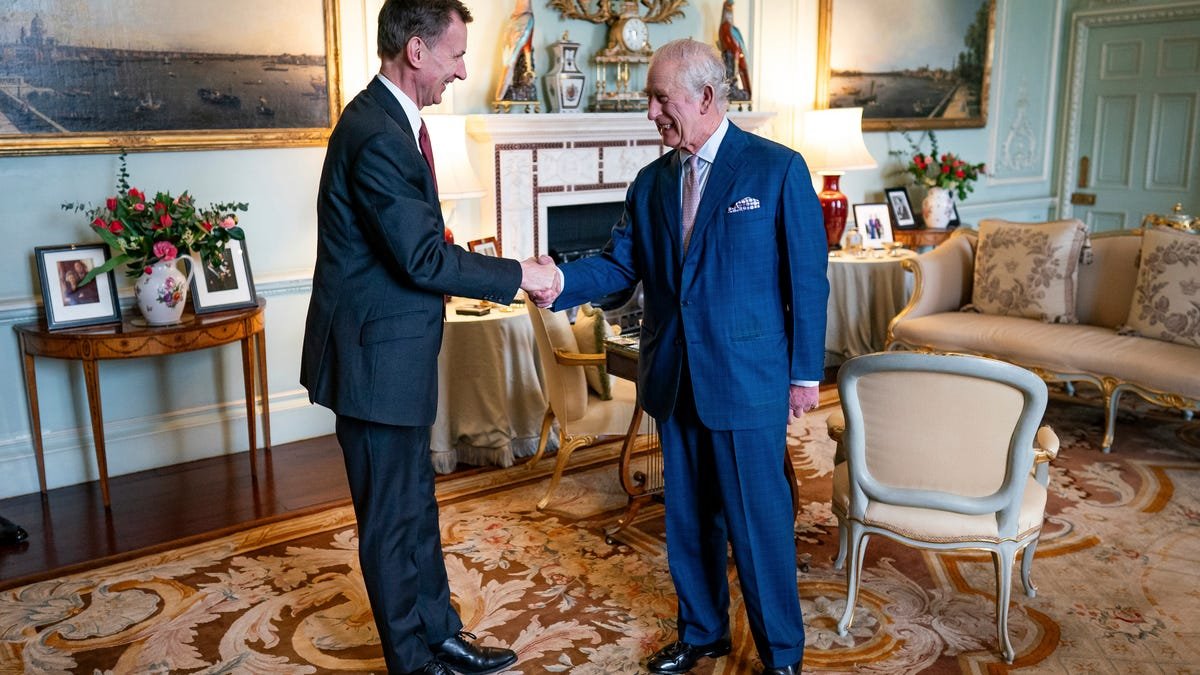LONDON (AP) — British Treasury chief Jeremy Hunt sought Wednesday to bolster spirits within his Conservative Party with another tax cut for 27 million working people, hoping it can turn the political dial ahead of a general election this year.
Even though the British economy has hit one definition of recession and public finances will remain stretched over coming years, Hunt used his annual budget statement to announce a further reduction in national insurance by a further 2 percentage points, to 8%. He also promised to cut national insurance rates further “so we truly make work pay.”
He opted not to cut the basic rate of income tax, which also would have benefited retirees and savers — to the likely disappointment of many of Conservative peers who had been hoping for one as a rallying call for the upcoming election.
Other potential voter-friendly moves include freezing taxes on alcohol and gas at the pump and raising the amount of money individuals can earn before they have to pay back a child benefit they receive from the state.
With poll after poll showing the Conservatives losing heavily to the main opposition Labour Party in a general election, the government hopes putting more money in people’s pockets during a cost-of-living crisis will boost the Conservative Party’s dire ratings.
The election has to take place by January 2025 but could in theory take place next month. Hunt’s boss, Prime Minister Rishi Sunak, will ultimately decide when the election will take place as their party tries to retain control of government, which they have held since 2010.
Hunt told Parliament that the British economy withstood the coronavirus pandemic and a sharp spike in energy prices following Russia’s invasion of Ukraine, which sent inflation soaring and prompted the Bank of England to raise interest rates aggressively.
“We can now help families not just with temporary cost-of-living support but with permanent cuts in taxation,” Hunt said. “We do this to give much-needed help in challenging times. But also because Conservatives know lower tax means higher growth. And higher growth means more opportunity, more prosperity and more funding for our precious public services.”
The tax giveaway will be partly paid for by keeping a lid on spending for already cash-starved public services as well as a series of tax increases to take effect at different times over the coming years.
Those tax hikes will affect business class airfares, vapes and oil and natural gas producers, who enjoyed a windfall after Russia’s invasion of Ukraine sent energy prices soaring. Hunt also abolished “non-domiciled” tax status, which allows some wealthy individuals to avoid paying U.K. taxes, something Labour has been calling for.
Sunak and Hunt have restored a measure of economic stability after the short-lived premiership of Liz Truss, which foundered after a series of unfunded tax cuts roiled financial markets and sent borrowing costs surging.
But U.K. households are struggling under the worst cost-of-living crisis in decades. And economists warn that the tax burden will remain near record levels regardless of what the budget delivers as the government recoups the hundreds of billions of pounds that it spent during the pandemic and the energy price shock. That’s an uncomfortable position for the Conservative Party, which has traditionally identified itself as the low-tax party.




